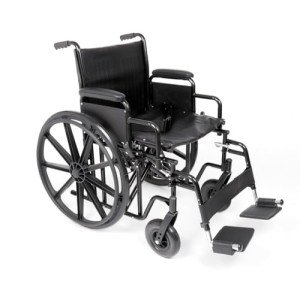Bariatric Folding Wheelchair
Bariatric folding wheelchairs are designed to accommodate users of a bigger size. They feature a higher weight capacity than standard models and are built with reinforced products for added stability and longevity.
Nevertheless, not everybody with a high body mass index (BMI) needs a bariatric chair as many fall within the safe weight limitations of basic wheelchairs.
Size and Weight Capacity
Bariatric wheelchairs have broader seats and are created to accommodate larger people, generally weighing as much as 500 lbs. These chairs have a durable frame made from strengthened products like steel and are developed with larger wheels that offer more weight circulation and maneuverability for larger users.
When comparing bariatric high back wheelchair , make sure the weight capacity is listed as static or active load. Static weight capacity describes how much a chair can hold when it's sitting still, while active load capacity is determined by putting the chair through a drop test that replicates somebody plopping down into the seat.
Standard wheelchairs are extensively produced and created for users with average body weights, making them more affordable than bariatric designs. Medicare and other insurance coverages might just cover a minimal variety of bariatric wheelchairs, depending upon a client's medical requirements and medical diagnosis. These chairs are likewise more expensive than standard wheelchairs because they have a customized style and building and construction. Nevertheless, they are a terrific option for patients with a large range of medical conditions that require a more comfy travel experience.
Seat Dimensions and Comfort
Unlike standard wheelchairs, bariatric designs have wider seats to accommodate bigger individuals. They likewise have more robust frames and big, long lasting wheels that can hold up against higher loads. They can be tailored with various seating options and accessories based upon the user's needs and choices.
When comparing wheelchairs, it's crucial to look at their weight capacities under both fixed and active load ratings. Static load describes the chair's optimum capacity when it's sitting still, while active load measures just how much a wheelchair can safely hold when somebody sits in it and moves around. Some manufacturers may also show the weight limit of a bariatric wheelchair in kilograms, which is typically more precise since it takes into account the average bodyweight of an individual who utilizes the chair.
In addition to a broad seat, a bariatric folding wheelchair should have adjustable cushioned leg rests to help users remain comfy while taking a trip. It ought to also have turn up armrests that can be vacated the method to avoid getting in the user's method when they desire to stand or move to another surface area.
If you're considering a bariatric wheelchair, ask a doctor or mobility professional for suggestions. They can assess your requirements, suggest the right chairs for you, and guide you through the procedure of purchasing one. They can also assist you compare features and prices to discover a wheelchair that best fits your budget. They can even use advice on other mobility options such as power placing systems and iLevel seating.
Weight and Portability
While basic wheelchairs are typically economical, bariatric chairs tend to be a bit more costly. This is because of their specialized design and building, along with the truth that they're a little heavier than their counterparts.
If you're worried about the expense of a bariatric chair, talk to a healthcare provider or mobility specialist. They'll be able to assess your special needs and identify which type of wheelchair is the very best suitable for you. They can likewise recommend wheelchair devices based on your specific requirements. Furthermore, if you're looking to get your wheelchair covered by insurance coverage, such as Medi-Cal, they can direct you on the actions associated with this process. To learn more, read our guide to wheelchair insurance coverage. Then, you can start your journey towards independent mobility.
Manoeuvrability and Handling
Selecting the right wheelchair can be an essential decision for those with limited mobility. Bariatric wheelchairs offer increased weight capabilities and are designed to accommodate bigger individuals. They typically feature larger wheels, broader armrests and seating choices, and are sturdier than standard wheelchairs.
When selecting a bariatric wheelchair, think about the person's specific needs and the environment in which they will be using it. Examine the weight capacity and seat measurements, and look for adjustable features like cushioned raising leg rests to support convenience and ease of transfer.
Identify whether the wheelchair is suitable for manual or powered usage. For added flexibility, a bariatric folding wheelchair can be easily folded and compressed for storage or transport. This makes them an ideal option for those with limited home space or who need to travel fars away. The wheelchairs also feature leak proof wheels to guarantee durability and low upkeep. Suitable for users approximately a maximum of 35 stone.

